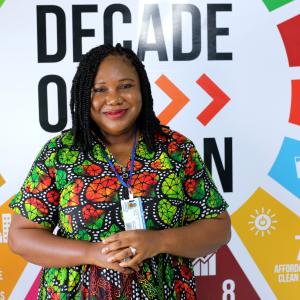Liberia: Put people before profit and ensure responsible business environment, UN experts urge
14 November 2022
Press Release
MONROVIA/GENEVA (11 November 2022) – The Government of Liberia and businesses operating in the country must urgently implement measures to ensure the quest for economic development does not continue to undermine human rights, says a group of UN experts.
“The present climate of irresponsible business practices provides profit for companies but does little for people. A sustainable and stable peace calls for accountability, transparency, equality, social cohesion, the rule of law, and respect of human rights for all,” said the experts from the Working Group on human rights and transnational corporations and other business enterprises.
The experts welcomed the Government’s commitment to implement the UN Guiding Principles on Business and Human Rights (UNGPs), and praised the development of a national action plan on business and human rights. However, they were alarmed at the absence of State oversight in various parts of the country.
“Facilitating foreign investment has superseded the implementation of responsible business practices,” said Working Group Chair Fernanda Hopenhaym, presenting a statement at the end of a 10-day visit. Basic infrastructure and services were lacking, especially outside Monrovia. “The general neglect of local communities in development planning is unacceptable,” she said.
The Government needs to ensure domestic and foreign business enterprises demonstrate much greater respect for human rights, Hopenhaym said. “A critical element is transparency and meaningful participation of affected communities in decisions regarding business activity,” she said.
The experts met representatives of Government, businesses, workers unions, civil society organisations and local communities to discuss the opportunities and challenges faced in implementing the UN Guiding Principles on Business and Human Rights.
Legal reforms, such as the Land Rights Act of 2018 and the Decent Work Act of 2015, were welcomed but implementation was weak. “The experience of Liberia shows the urgent need for a smart mix of policies, incentives and regulations to implement laws and promote a business culture that respects human rights,” said Damilola Olawuyi, the other member of the Working Group on the visit.
Human rights defenders, trade union members and community members were vulnerable to attacks and intimidation for speaking out against business-related human rights abuses and the Government needed to act. “People who are seeking to hold businesses accountable need to be respected, taken seriously, and offered effective grievance mechanisms to have their cases heard and remediated,” Hopenhaym said.
Among their initial findings, the experts reflected on the very limited employment opportunities, the significant hold that a small number of large multinational corporations have on the economy, the poor labour conditions across different sectors and concessions, and the multiple forms of systematic harassment, abuse and violence that they heard are faced by women and girls.
“Liberia should ensure that all government institutions dealing with business, and the Judiciary, together with the Independent National Commission on Human Rights have the necessary resources and training to provide effective oversight of corporate behaviour, and corporate accountability,” said the experts.
During their visit, the Working Group experts had meetings in Monrovia, and in Nimba County, Bong County and Bomi County. The experts’ final report, including its findings and key recommendations, will be presented to the UN Human Rights Council in June 2023.
ENDS
The Working Group on human rights and transnational corporations and other business enterprises was established by the UN Human Rights Council in June 2011. Its current members are: Ms. Fernanda Hopenhaym (Chairperson), Ms. Pichamon Yeophantong (Vice-Chairperson), Mr. Damilola Olawuyi, Mr. Robert McCorquodale, and Ms. Elżbieta Karska.
The Working Group is part of what is known as the Special Procedures of the Human Rights Council. Special Procedures, the largest body of independent experts in the UN Human Rights system, is the general name of the Council’s independent human rights monitoring mechanisms. The Working Group reports to the Human Rights Council and to the UN General Assembly. Special Procedures mandate-holders are independent human rights experts appointed by the Human Rights Council to address either specific country situations or thematic issues in all parts of the world. The experts are not UN staff and are independent from any government or organization. They serve in their individual capacity and do not receive a salary for their work.
The UN Guiding Principles on Business and Human Rights, unanimously endorsed by the UN Human Rights Council in 2011 (resolution 17/4), provide the authoritative global standard for action to safeguard human rights in a business context, clarifying what is expected by governments and companies to prevent and address impacts on human rights arising from business activity.
UN Human Rights, country page – Liberia
For additional information and media requests please contact the Working Group Secretariat:
In Liberia (during the dates of the visit): tel. +41 76 691 1639; email natasha.andrews@un.org and federica.morvay@un.org CC: hrc-wg-business@un.org
In Geneva: +41 22 917 929, email natasha.andrews@un.org and federica.morvay@un.org CC: hrc-wg-business@un.org
For media inquiries related to other UN independent experts please contact Renato de Souza (renato.rosariodesouza@un.org) and Dharisha Indraguptha (dharisha.indraguptha@un.org)
Follow news related to the UN’s independent human rights experts on Twitter @UN_SPExperts.

Gradiah Walker Bou Hussein



